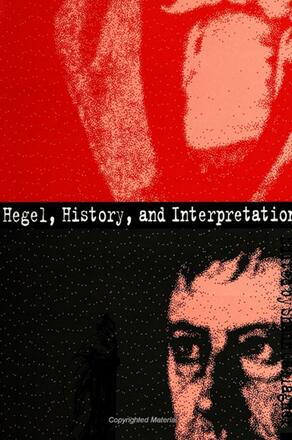
Hegel, History, and Interpretation
Alternative formats available from:
Extends critical discussions of Hegel into contemporary debates about the nature of interpretation and theories of philosophical hermeneutics.
Description
Hegel, History, and Interpretation is a collection of essays that extend critical discussions of Hegel into contemporary debates about the nature of interpretation and theories of philosophical hermeneutics. Essays by Susan Armstrong, John D. Caputo, William Desmond, Robert J. Dostal, Shaun Gallagher, Philip T. Grier, H. S. Harris, Walter Lammi, George R. Lucas Jr., Michael Prosch, Tom Rockmore, and P. Christopher Smith explore difficult issues concerning historical interpretation, the nature of hermeneutics at the end of metaphysics, the social and critical function of reason, and the inadequacy of Hegel's interpretation of the experience of otherness. In the course of these essays Hegel is made to converse with Kierkegaard, Nietzsche, and Heidegger as well as with contemporary theorists such as Gadamer, Habermas, Foucault, and Derrida. Thus the contributors explore both the themes that form the common ground between Hegelian philosophy and contemporary interpretation theory and the mixed reception of Hegel's philosophy into contemporary discussions about history, deconstruction, critical theory, and alterity.
Shaun Gallagher is Professor of Philosophy at Canisius College. He was Visiting Scientist at the Medical Research Council, Applied Psychology Unit, University of Cambridge in 1994. He is the author of Hermeneutics and Education and the co-editor (with Thomas W. Busch) of Merleau-Ponty, Hermeneutics, and Postmodernism, both published by SUNY Press.
Reviews
"Gallagher has brought together in a clear, thematic harmony the invited papers of four world-class intellectuals (Harris, Caputo, Desmond, and Rockmore), six professors well-known and widely respected in their fields (Lucas, Dostal, Gallagher, Smith, Armstrong, and Grier), and two younger philosophers just beginning their careers (Lammi and Prosch). I know of no book that deals as directly with the issue of how Hegel figures into postmodern ways of interpretation." — Eric v.d. Luft, SUNY Health Science Center at Syracuse, Library
"The overall quality of the essays is high. The book focuses on the relevance of Hegel in the context of contemporary philosophy. It is relevant in the arena of Hegel studies and for those interested in postmodernist themes generally." — William Maker, Clemson University